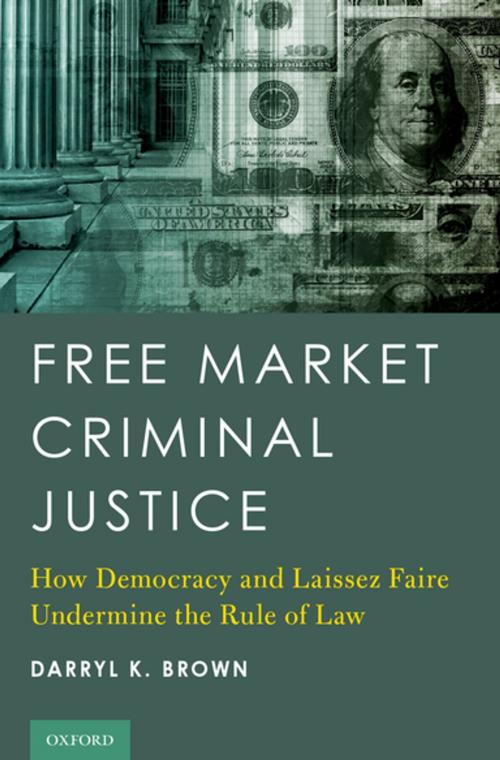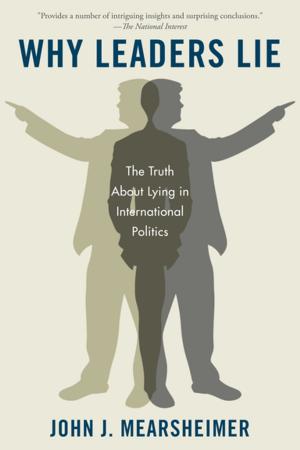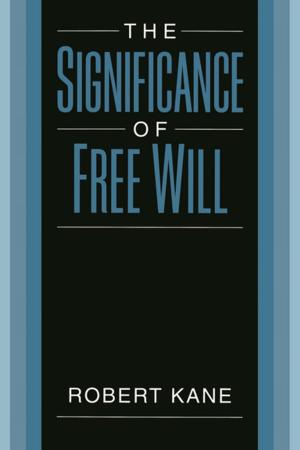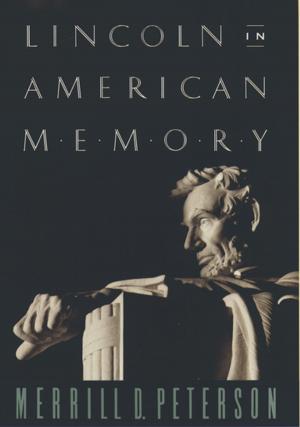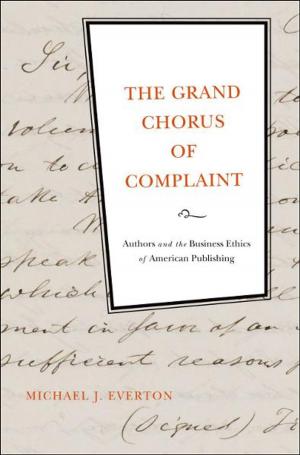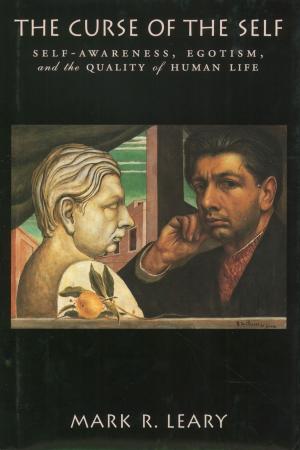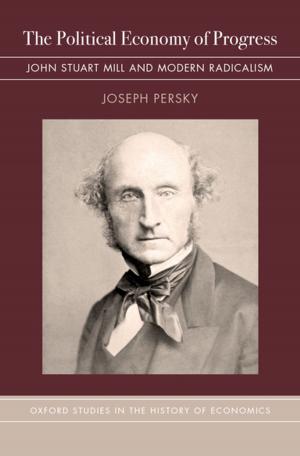Free Market Criminal Justice
How Democracy and Laissez Faire Undermine the Rule of Law
Nonfiction, Reference & Language, Law, Criminal Procedure, Criminal law, Social & Cultural Studies, Social Science, Crimes & Criminals, Criminology| Author: | Darryl K. Brown | ISBN: | 9780190457891 |
| Publisher: | Oxford University Press | Publication: | December 22, 2015 |
| Imprint: | Oxford University Press | Language: | English |
| Author: | Darryl K. Brown |
| ISBN: | 9780190457891 |
| Publisher: | Oxford University Press |
| Publication: | December 22, 2015 |
| Imprint: | Oxford University Press |
| Language: | English |
Free Market Criminal Justice explains how faith in democratic politics and free markets has undermined the rule of law in US criminal process. America's unique political development, characterized by skepticism of government power, has restrained the state's role not only in the economic realm but also in key parts of its criminal justice systems. From charging decisions through trials or guilty pleas and appeals, legal safeguards against bias, wrongful convictions, and excessive punishment rely more on politics and laissez-faire economic ideas than on enforceable rules and duties. Prosecutorial discretion is checked not by legal standards but by popular elections, and plea bargaining law is wholly built on a faith in unregulated markets-in contrast to the systems in other common law countries that also have neoliberal economies, adversarial process, and high guilty plea rates. This book argues that democratic and market ideas have led to more partisan prosecutors, narrower duties of evidence disclosure, and to a right to defense counsel that carefully accommodates preexisting wealth inequalities. Most important, democratic and market values have diminished the responsibility of judges-and of the state itself-for the accuracy and integrity of court judgments. Paradoxically, skepticism of government has expanded state power, reduced checks on executive officials, marginalized juries, and contributed to record incarceration rates. In contrast to recent arguments for re-invigorating democracy in criminal process, Free Market Criminal Justice argues that, to strengthen the rule of law, US criminal justice needs less democracy, fewer market mechanisms, and more law.
Free Market Criminal Justice explains how faith in democratic politics and free markets has undermined the rule of law in US criminal process. America's unique political development, characterized by skepticism of government power, has restrained the state's role not only in the economic realm but also in key parts of its criminal justice systems. From charging decisions through trials or guilty pleas and appeals, legal safeguards against bias, wrongful convictions, and excessive punishment rely more on politics and laissez-faire economic ideas than on enforceable rules and duties. Prosecutorial discretion is checked not by legal standards but by popular elections, and plea bargaining law is wholly built on a faith in unregulated markets-in contrast to the systems in other common law countries that also have neoliberal economies, adversarial process, and high guilty plea rates. This book argues that democratic and market ideas have led to more partisan prosecutors, narrower duties of evidence disclosure, and to a right to defense counsel that carefully accommodates preexisting wealth inequalities. Most important, democratic and market values have diminished the responsibility of judges-and of the state itself-for the accuracy and integrity of court judgments. Paradoxically, skepticism of government has expanded state power, reduced checks on executive officials, marginalized juries, and contributed to record incarceration rates. In contrast to recent arguments for re-invigorating democracy in criminal process, Free Market Criminal Justice argues that, to strengthen the rule of law, US criminal justice needs less democracy, fewer market mechanisms, and more law.
